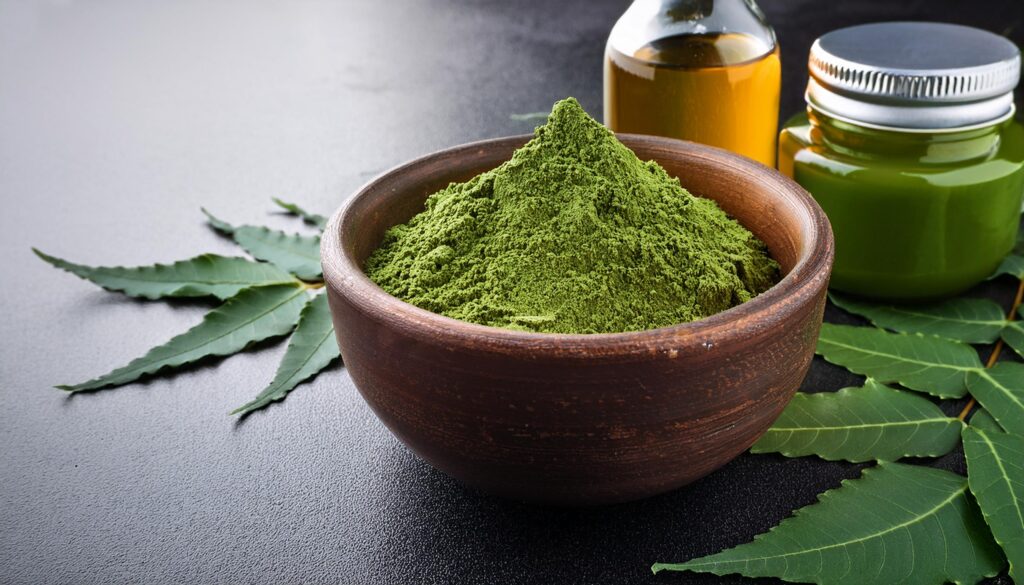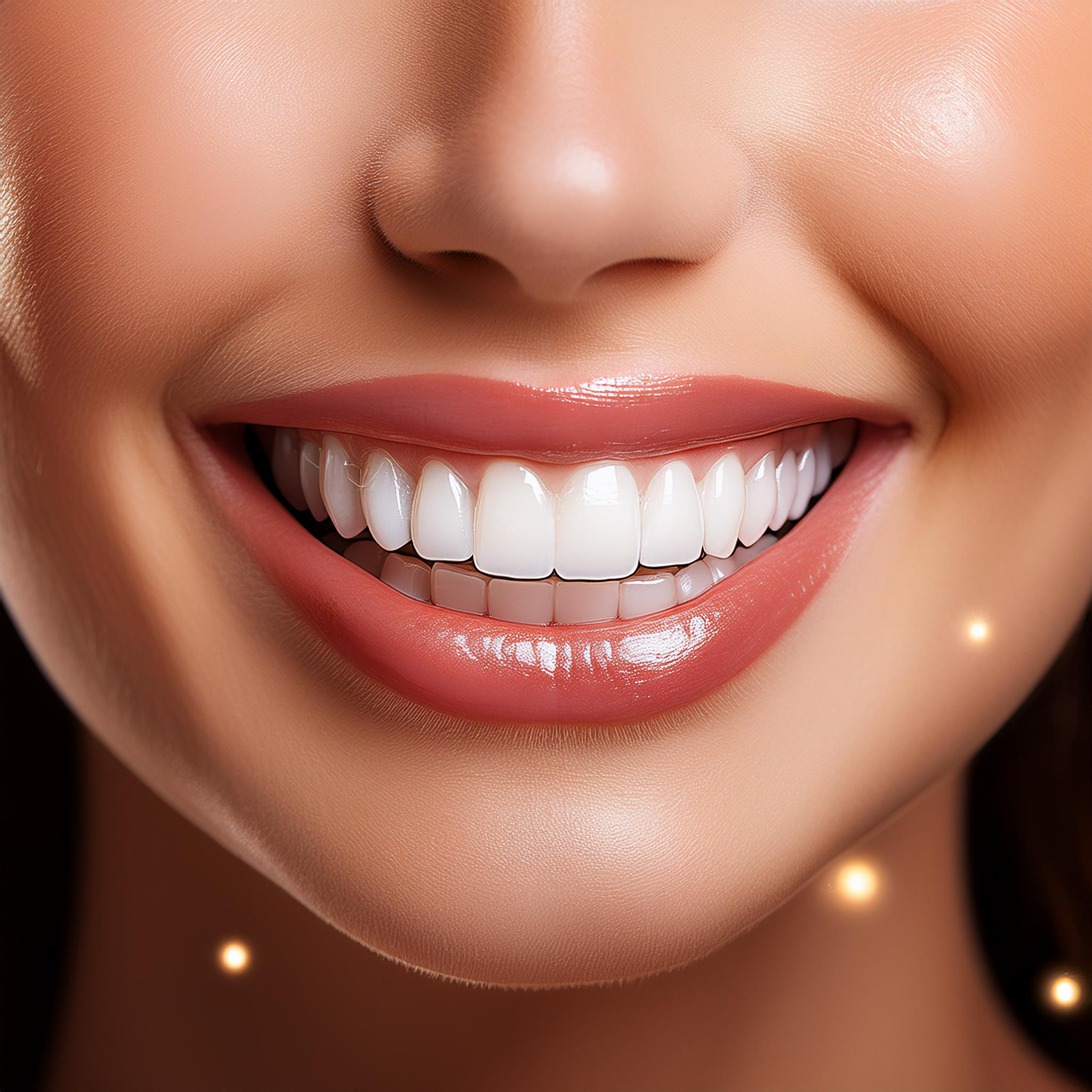Ayurveda, the ancient Indian system of medicine, provides valuable insights into maintaining dental health through natural and holistic practices. Emphasizing a balanced diet that incorporates all six tastes, Ayurveda recommends calcium-rich foods like dairy products and leafy greens to strengthen teeth.
It also highlights the importance of Vitamin D, obtained from sunlight and foods like fortified cereals and fish, for proper calcium absorption.
Fresh fruits and vegetables, particularly those that can be eaten raw, act as natural toothbrushes, promoting oral hygiene. Not only this, Ayurveda has many tips to help keep your kids’ teeth strong and healthy. Read on to learn more.
Tips To Keep Pearly White Teeth Strong And Healthy
Herbal Powerhouses for Dental Health

Neem Magic: Neem leaves are renowned for their antibacterial properties. Make a paste of ground neem leaves with a few drops of sesame oil. Gently rub it on your gums (not directly on teeth) for a natural, cleansing effect.
Triphala Power: Triphala, an herbal blend of three fruits (amalaki, bibhitaki, and haritaki), is an Ayurvedic powerhouse. Consider a diluted Triphala decoction as a mouthwash. It helps maintain a healthy oral balance.
Dietary Tips To Promote Healthy Teeth
Ayurveda offers several dietary tips to promote healthy teeth in children. Here are some key recommendations:
1. Balanced Diet
Ensure a balanced diet made from natural ingredients, that includes all six tastes: sweet, sour, salty, bitter, pungent, and astringent. This helps maintain overall health and promotes strong teeth.
2. Calcium-Rich Foods
Include dairy products like milk, yogurt, and cheese, which are rich in calcium and essential for strong teeth and bones.
Leafy green vegetables like spinach and kale are also good sources of calcium.
3. Vitamin D
Ensure adequate sunlight exposure, as Vitamin D is essential for calcium absorption.
Include foods rich in Vitamin D, such as fortified cereals, egg yolks, and fish like salmon and mackerel. If you are vegetarian, include drumsticks or moringa in your diet.
4. Fresh Fruits and Vegetables
Encourage the consumption of raw fruits and vegetables like apples, carrots, and cucumbers. These foods help clean teeth naturally and promote gum health.
Avoid excessive citrus fruits, which can erode enamel if consumed in large quantities.
5. Whole Grains and Nuts
Whole grains like brown rice, oats, and whole wheat provide essential nutrients for overall health.
Nuts such as almonds and walnuts are rich in minerals like phosphorus, which supports tooth health.

6. Hydration
Ensure your child drinks plenty of water throughout the day. Water helps wash away food particles and bacteria from the mouth.
Herbal teas like chamomile or peppermint can be beneficial for oral health.
7. Limit Sugary Foods
Reduce the intake of sugary snacks and drinks, which can lead to tooth decay.
Instead of candy, opt for natural sweeteners like honey in moderation.
8. Ayurvedic Remedies
Encourage the use of herbal tooth powders containing neem, licorice, and clove for brushing teeth. These herbs have antimicrobial properties and promote oral hygiene.
Teach children to rinse their mouths with warm water and a pinch of salt after meals to maintain oral cleanliness.
9. Proper Chewing
Encourage your child to chew their food thoroughly. Proper chewing stimulates saliva production, which helps neutralize acids and protect teeth.
10. Avoid Sticky Foods
Limit foods that stick to the teeth, such as dried fruits and sticky candies. If consumed, ensure proper brushing afterward.
Implementing these Ayurvedic dietary tips can significantly contribute to maintaining healthy teeth and gums.
Additional Tips for Kids’ Dental Health

Ayurveda, the ancient Indian system of medicine gives very simple tips to support your child’s dental health.
Gentle Gum Massage
For Newborns: Dip a clean finger in warm ghee or coconut oil and gently massage their gums. This not only soothes teething discomfort but promotes healthy gum development.
For Toddlers: Move to a soft toothbrush dipped in warm water for a gentle massage after meals. This strengthens gums and removes food particles.
Conclusion
Ayurveda advocates for limiting sugary and sticky foods to prevent tooth decay while encouraging the use of herbal remedies such as neem and clove powders for brushing. Regular rinsing with warm salt water and thorough chewing of food is also recommended to keep the mouth clean and stimulate saliva production, which protects teeth. By integrating these Ayurvedic principles into daily routines, parents can effectively support their dental health naturally and holistically.





